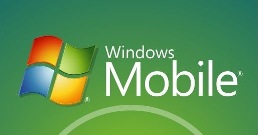Sorry Scoble, it isn't over for Windows Mobile or Nokia in the US


While the iPhone is doing well on AT&T, take a look at their offerings and you will see they have a fantastic collection of Windows Mobile offerings as well with flagship products like the HTC Fuze and Samsung Blackjack II. These devices do quite well in the business sector and with those looking for a device that is not as locked down or limited as the iPhone can be. While Verizon does have the BlackBerry Storm (I don't like it myself) and other BlackBerry devices, they also have a very nice collection of Windows Mobile devices. Sprint will soon have the Palm Pre, but again has offerings of good BlackBerry and Windows Mobile devices. T-Mobile is now focusing on the G1 for their smartphone of choice, but when I walk around I see a ton of people who have and enjoy using the T-Mobile Dash and T-Mobile Shadow so Windows Mobile does just fine. Actually, if you look at the carriers and their offerings you may conclude that RIM BlackBerry and Microsoft Windows Mobile are the real leaders in the US mobile space since you can find their devices on every carrier while the iPhone and G1 are just limited to a single carrier.
People are more tied to a carrier rather than a device so it doesn't benefit a carrier to limit themselves to a single smartphone platform and I doubt you will see any carrier doing that here in the US.
Nokia on the other hand is not in the game when it comes to US carrier support, in regards to the smartphone market. There are low end Nokia phones on most carriers and these actually may be doing well with people looking for basic phones. Eseries devices have shown up on AT&T, but compared to the European market the US market cannot even compare with no support of the outstanding Nseries devices and other Eseries models. You can buy them unlocked from Nokia USA, but there is a long way to go for Nokia here in the US. However, Nokia does very well outside the US and their current smartphone market share still leads all others with nearly 50% of the worldwide share so they are not even close to being out of the smartphone game. If Nokia can get carriers to offer their Eseries and Nseries devices, then I think they will do just fine because these devices are outstanding phones with great functionality and improving services.
They will soon be offering the Nokia E63 for just US$279 that will be SIM unlocked and require no contract. You can now pick up the E71 for less than US$400 unlocked too. If carriers won't offer Nokia smartphone devices then Nokia may remain a niche player in the US because I don't think there are enough mobile phone buyers in the US that understand buying an unlocked device for a few more upfront dollars is actually a better deal that gives them more choices and flexibility than picking up a low cost subsidized device that locks them in for at least two years.